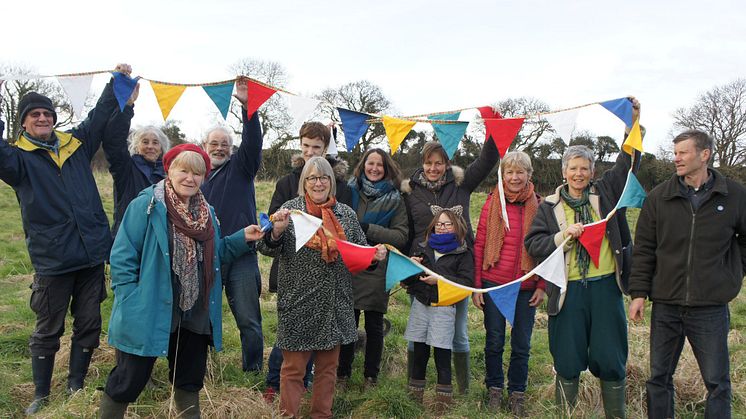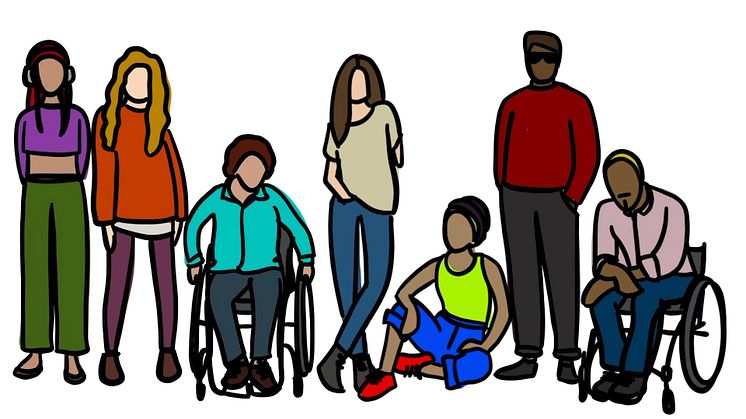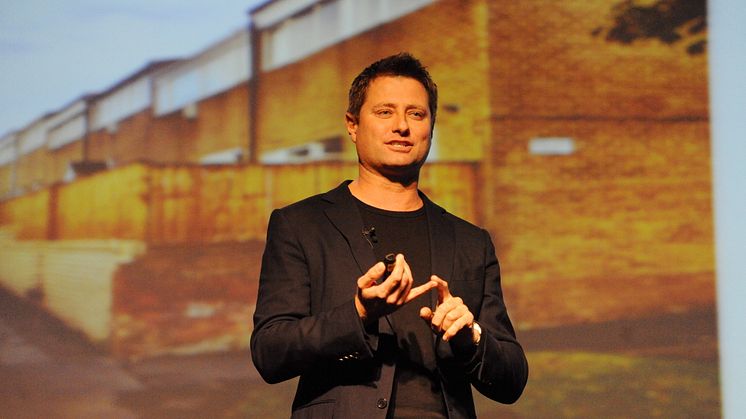
Press release -
Innovative housing can help tackle loneliness
People involved in community-led housing are significantly less likely to feel lonely than people living in more conventional homes and neighbourhoods, according to a new report.
The Department for Levelling Up, Housing and Communities (DLUHC) commissioned the report to explore whether and how innovative housing can help to tackle loneliness. It will form part of the development of an England-wide Loneliness Strategy following the publication of the Jo Cox Loneliness Commission report in late 2017.
Dr Mara Ferreri, a Senior Vice-Chancellor’s Research Fellow from the Department of Geography and Environmental Sciences, worked with academics from the universities of Bristol, Lancaster and the London School of Economics and Political Sciences, on the study. She is a Human Geographer specialising in cooperative and community-led housing, housing inequalities and is a founding editor of the open-access Radical Housing Journal.
Their report – Those little connections: Community led housing and loneliness – reveals that people living in community-led housing, such as co-housing, Community Land Trusts and Co-ops, found a sense of belonging from several factors, including the use of shared space and social and communal activities – although these were not necessarily explicitly aimed at community building.
It also found that residents were more likely to trust their neighbours. This trust emerged over time – a ‘slow build-up of a history of kindness’ as one resident put it – creating long-term supportive relationships.
The most tight-knit places, where members knew and trusted each other the most, performed best as supportive communities.
It was notable that residents did not always form close friendships, but members had a reciprocal, though not necessarily explicit, commitment to look out for each other.
The researchers found numerous instances of neighbours in community-led housing communities providing practical and emotional support across age groups or between those sharing similar challenges, such as parents raising young children.
The demanding endeavour of creating a new community with others also played a role in creating long-lasting and meaningful relationships and a sense of belonging that helped prevent loneliness.
Speaking about the study, Dr Ferreri said: “Loneliness can affect people at different life stages, and can be compounded by origin, gender and sexual identities, national and international migration, economic conditions and different abilities.
“Our research shows that community-led housing can ameliorate or even prevent many types of loneliness because it places inhabitants at the centre of decision-making about their home, promoting meaningful social and spatial relations.
“Support is now needed to make the option accessible to a wider and more diverse community and to incorporate elements of community-led housing into other forms of housing provision.”
She added that while many community-led housing schemes had degrees of intentionality to create a community, this was not necessarily a given, and community was created through everyday social interaction, self-governance and a shared sense of purpose.
Kath Scanlon, Distinguished Policy Fellow at the London School of Economics and Political Science, who led the research said, said: “Loneliness is a key societal challenge, particularly in the continuing context of the pandemic. Our research shows that the meaningful relationships and sense of belonging that community-led housing fosters can help counter that.
“This strengthens the case for greater support to widen access to these types of schemes and incorporate some aspects of them into more conventional housing developments. Community-led housing could help engender a stronger sense of community where individuals are never far from supportive company.”
The report recommends providing more support for resident control of management and decision-making from the formation stage of community-led housing schemes and providing well-designed and maintained spaces for social interaction.
It also recommends investigating how the beneficial features of community-led housing could be incorporated into existing housing, and conventional new residential schemes.
The researchers surveyed participants living in community-led housing across the UK and carried out five in-depth case studies in England:
- Lancaster Cohousing, in Halton, Lancashire, an eco-cohousing community consisting of privately own homes, community facilities, workshops, and shared outdoor space
- New Ground, OWCH (Older Women’s CoHousing), in Barnet, North London, for women over 50
- Ashley Vale Self-Build in central Bristol, a mixed self-built development with a community-owned hall and open space
- Tangram Housing Cooperative in Leeds, a fully mutual cooperative of tenants
- and Bristol Community Land Trust, a community-led development of 12 homes which are a mix of shared ownership and affordable rent.
The evaluation took account of the possibility that members of community-led housing projects might be more socially engaged than average by comparing them to members of the general public who were equally involved in social and community activities.
Dr Ferreri is a member of Northumbria University’s Social and Cultural Geographies research group, which explores radical and critical approaches in Human Geography to develop a more in-depth understanding of global injustices and the struggles of those seeking to challenge them.
Topics
Categories
Northumbria is a research-rich, business-focused, professional university with a global reputation for academic excellence. Find out more about us at www.northumbria.ac.uk --- Please contact our Media and Communications team at media.communications@northumbria.ac.uk with any media enquiries or interview requests ---









